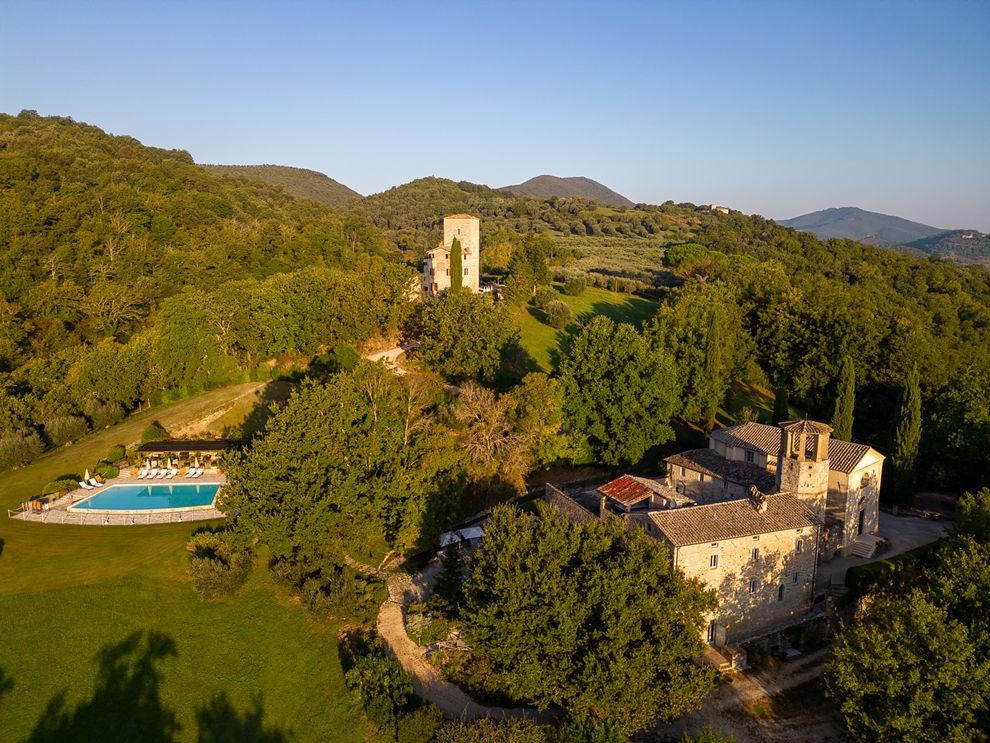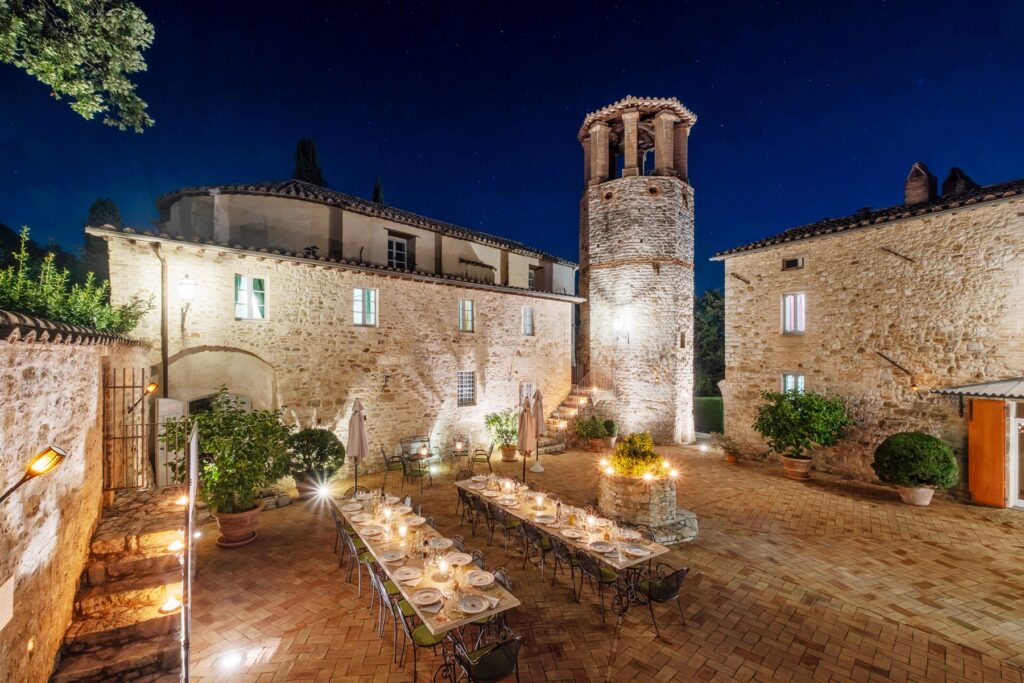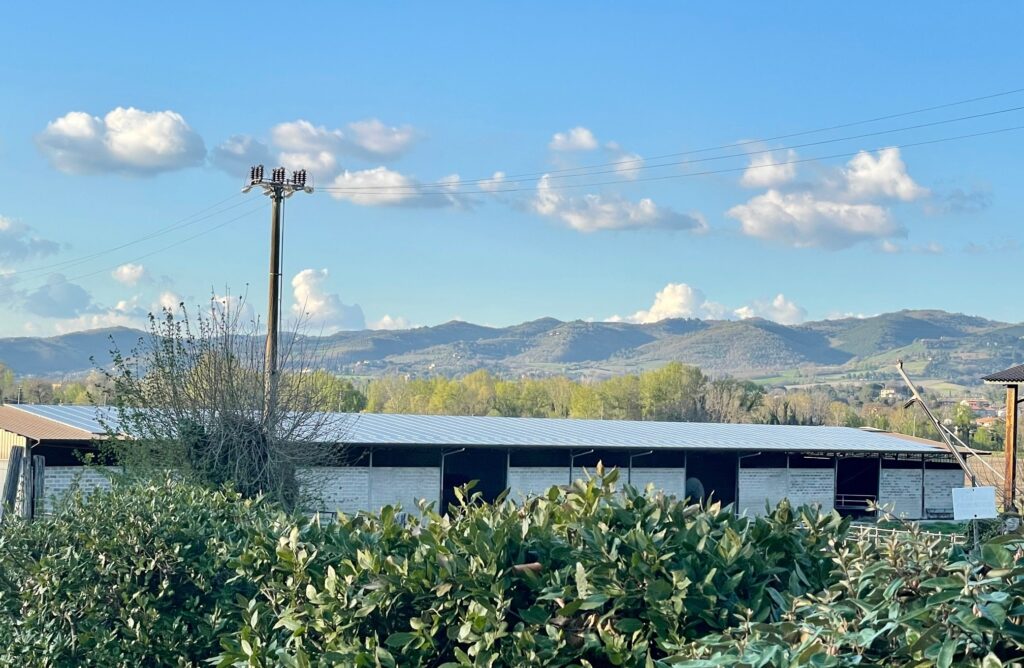A HOLIDAY BETWEEN LUXURY AND SUSTAINABILITY
IN THE HEART OF ITALY
INQUIRE

Le Torri di Bagnara Castles is an exclusive place to spend your holidays with your family and friends, a destination that combines Luxury and Comfort with respect for the Environment and Sustainability, to provide a healthy environment for our Guests.
Sustainability is now necessary: we all must do something to reduce greenhouse gas emissions and stop the occurring climate change. Becoming more environmentally friendly is a concern for many of us, particularly when we travel abroad and consider issues such as our carbon footprints.
Staying in eco-friendly accommodations reduces the impact of tourism on the environment since they focus on preserving the environment and have positive environmental effects, and also supports the local economy.
Our beautiful Eco-Castles offer a luxury holiday with a small carbon footprint since they champion clean and renewable energy as well as other ecological benefits.

OUR COMMITMENT TO THE ENVIRONMENT:
-Our beautifully restored medieval Castles preserve local heritage and histories and have been renovated using local materials, energy-efficient appliances, and renewable energy sources to reduce the carbon footprint of the buildings.
-Energy comes from our 140 kWh PV Solary Energy systems located down in the valley on the roofs of the new stable, that covers the electricity demands of all Castles and the whole Farm. Considering the electric energy consumed on average, using our renewable energy we save up to 1581 g of CO2 for each guest and fully let our Guests appreciate Umbria’s beautiful sunlight.
-Water waste is one of the most serious problems of the planet so we have made uphill 3 artificial lakes to harvest rain water that we use to irrigate fields and gardens.
-We have installed brand new latest generation heat pump systems for summer-winter conditioning and the production of hot water.
-We use energy-efficient appliances that help reduces the energy consumption.
-We have installed water flow reducers on the taps and save up to 26 g of CO2 emissions for every guest.
-We use energy-saving lamps and save up to 222 g of CO2 for every guest.
-We have installed double-glazed windows, that reduce carbon CO2 emission to up to 68Okgs per year.
-Water softener system and Legionella prevention system have also been installed.
-Our pools are cleaned with sea salt – a more environmental friendly alternative to chlorine.
-We use environmentally friendly cleaning products and practice daily a careful differentiated collection of waste.
-We serve seasonal, traditional, fresh organic food locally grown in our farm and in other selected Umbrian farms and we focus on local cuisine. Not only will you benefit from a reduced carbon footprint when it comes to dining, but you’ll also get to sample cuisine that celebrates local, fresh produce.
-Our Farm grows our own food: high quality extra virgin olive oil (cold-squash), pure honey, all kind of organic vegetables and some fruits, legumes, spelt, “Senatore Cappelli” wheat – a special kind of wheat low in gluten – with which flour our Chef makes home-made pasta, “Chianina “ veal meat (the one of the t-bone steak), truffles, wild asparagus and berries.
-We curate a number of in-house experiences for guests to enjoy, from a real Italian truffle hunting experience in our 1500-acre Bagnara Estate, to cooking classes and tastings focused on the seasonality of ingredients and respect for nature.
-We support local communities, directly putting money back into the economy, employing locals, promoting nearby transports, shops, markets and restaurants, volunteering our time.
-We offer free bikes to our guests.
-For the keen chefs among your group, there’s a vegetable garden and a herb garden that you are welcome to use too.
-We have installed 2 charging stations for electric vehicles.
-The 1500 acre of land of the Bagnara farm-estate are managed using integrated cultivation techniques – in respect of the environment and of natural balance – and organic fertilizers; we have created several ecological corridors that promote the ecological balance and acres of fields with melliferous plants to feed our bees.


